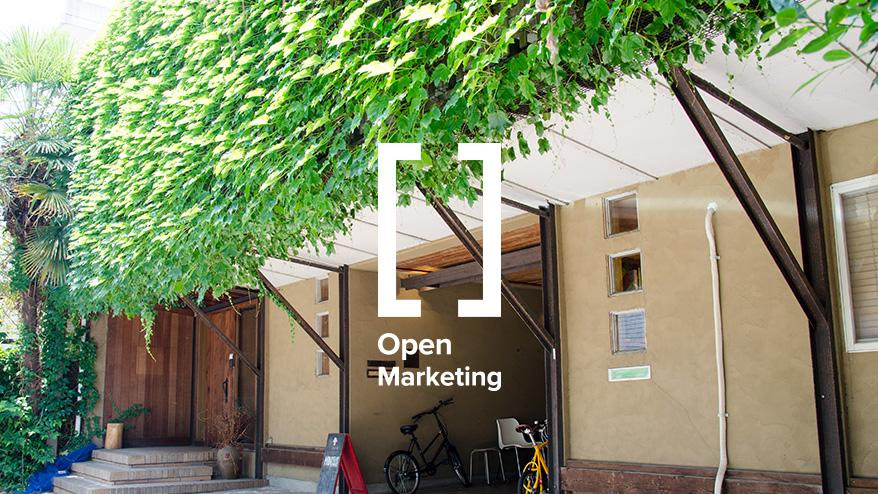Hello everyone. I am Hayashi, the representative of Monosus.
Since the last time, we have been talking about "believing in your customers" as Step 1 for engaging in Open Marketing.
Last time
- Managers and marketers have the misconception that if they do the business they want to do with the people they want to do it with, they won't make a profit.
- In reality, they are not making a profit because they are spending the profits that would have been brought in by regular customers on attracting new customers.
- In addition, there are very few managers and marketers who can clearly explain why customers buy from their company rather than from another company, and why loyal customers continue to buy their company's products and services.
The content was as follows.
In this article, I would like to talk about how you can understand why your customers buy your products and services.
What to do to understand your customers' purchasing motivations
It may seem obvious, but the best way to find out why customers bought and continue to buy your products or services is to ask them themselves.
We briefly touched on customer interviews in Vol. 4, but this time we would like to talk about how to conduct them specifically.
Generally, customer survey methods include questionnaire surveys, group interviews,
There are many types, including ethnography.
All of these methods are effective, and the method I am introducing here is not intended to be superior to the others.
When reexamining your company, it is important to understand the appeal of your company and the customers who value your company based on interviews with customers.
Why do you need to ask your customers?
Before we get into the specifics of how to do this, you must first understand that
Why should you interview customers to understand your company's core strengths?
It would take too long to explain in detail, so I'll give you a brief explanation:
When a company provides something in exchange for payment, whether it be a product or a service, human thought and hands are always involved somewhere.
As the company continues to provide services in this way, it accumulates knowledge.
This will be shared among the members.
There are several types of knowledge, but broadly speaking, they can be divided into knowledge that can be put into words and knowledge that is difficult to put into words.
(Actually it's more complicated than that.)
Of these two, companies often rely on what can be put into words in order to carry out their marketing and management.
Examples of things that can be expressed in language include the following:
Service List
A typical example of knowledge used in marketing is a service list.
This is a predetermined list of what additional services, warranty services, etc. a company will provide when selling a product.
Or, for a service, it's a predefined list of what exactly is going to happen within the service and how each of those things will be delivered.
These are often made known to customers, and in many cases operations within the company are built based on them.
manual
A typical example of knowledge used in management is a manual.
It is a detailed description of procedures and standards for what to do and how to do it.
Although it will not be made known to customers, it will be shared with almost all members of the company and will have a significant impact on the provision of products and services.
There is a reason why I first introduced things that can be put into words.
This is because many companies believe that their point of differentiation and the source of their strength lie in these things that can be put into words.
We believe that this is important within the company and make sure that everyone understands it.
This is because we are constantly paying attention to whether we are executing things properly.
However, while what can be put into words is important for many companies, it rarely becomes a source of unique, inherent strength.
Because being verbalizable has a clear definition.
Because others can copy it.
Only a select few companies can sustain this advantage by utilizing their overwhelming capital to continue to dominate the market.
So what about the other difficult thing to put into words?
There are many types, but the most representative ones are
Examples include know-how and culture .
It's not that these things can't be put into words at all,
It is difficult to summarise in one word, and it is also difficult for a company to talk about it itself.
For example, when it comes to culture, it is difficult for us Japanese to adequately describe the appeal of Japanese culture, but foreigners who come to Japan can tell you a lot about the appeal of Japan that we Japanese are not even aware of.
In other words, the fact that it is difficult to put into words means that it is difficult for the people involved.
For those on the outside, it's easier than for them.
And gives insightful opinions.
The same is true for companies, who can find it difficult to put their own appeal, strengths, and individuality into words.
This is a slightly abbreviated explanation, but
I hope you now understand why it is necessary to ask your customers to find out what is appealing about your company.
Ask customers why they like your products and services
Now it's time to interview customers.
There are a few things to keep in mind when interviewing customers, but the most important thing is
- Who to interview
- What to interview
- How to analyze the interviews
These are the three points:
1. Who to interview
As mentioned at the beginning, customer interviews are often used as a method of customer research, and various interview methods have been established by predecessors.
Furthermore, there is no absolutely correct method, and the effectiveness of each method will vary depending on the purpose of the investigation.
With that premise in mind, we believe that suitable interviewees are
"Customers who like our products and services and use them frequently and consistently."
The thing to remember here is that the amount you spend isn't always important.
Of course, it would be ideal if the frequency and continuity of use were high and the amount spent was also high, but
A large amount of spending alone does not tell you whether a customer has a high level of loyalty to your company.
It may just be that you happened to spend a large amount on one purchase.
I mentioned foreign tourists earlier, so to use that as an example,
Just because someone has come to Japan once and gone on a shopping spree does not necessarily mean they are a fan of Japan.
Rather, tourists who visit Japan multiple times and frequently, even if they spend less each time, are likely to like and understand Japan much better.
What we want to know more than anything right now is the appeal of our company.
Remember, this isn't a way to make you spend a lot of money.
In addition, if there are many frequent and continuing customers,
You have to look at each one individually to decide who to talk to.
There are several detailed methods for extracting interviewees from there.
Just to give you the main points,
The goal is to identify customers with whom your company wants to continue to have ongoing relationships .
From the many candidates, we will select interviewees who meet these conditions to the extent possible.
Also, 8 to 10 interviewees is sufficient.
2. What to interview
What you interview about will vary greatly depending on the characteristics of your product or service.
However, what is common to all of these is finding out the customer's motivations for their first purchase and their motivations for continuing to purchase .
There are some products and services for which the initial purchase motivation is weak due to reasons such as high purchase frequency or low purchase unit price.
It is advisable to find out as much detail as possible about the customer's motivation for their first purchase.
This is because the initial purchase motivation contains information that is essential to revealing the appeal of your company, such as what the customer is worried about, what pain they wanted to escape by paying for your company's products or services, and how they made that decision.
It is also important to conduct interviews
Don't just accept things that are easily put into words .
The ultimate goal of the interview is to get customers to talk about the appeal of our company, which is difficult for us to put into words.
It's not easy for customers to put it into words either.
Some interviewees begin speaking fluently, as if they have prepared their answers in advance.
However, instead of immediately taking that as a result of the interview,
It is important to ask repeated questions carefully to draw out the true feelings deep within the customer's heart.
In particular, there are certain points we focus on when interviewing people about their motivation for first-time purchases.
The question is, "What ultimately prompted you to make the purchase?"
There is an expression for taking a bold purchase, "jumping off the stage at Kiyomizu Temple," which I think is a very apt expression.
As the expression " jump" suggests, when making a decision to buy something,
People can have the emotion of "fear."
It's an emotion, so it's not a matter of logic.
Reason can be put into words, but emotions are difficult to put into words.
However, it is difficult to identify the "push" that made him overcome his fear and decide to jump.
This will give you a great hint to uncover the appeal of your company that you may not have been able to put into words.
3. How to analyze the interviews
When you interview 8 to 10 customers who continue to purchase your company's products or services, you will make various discoveries.
The methods of these analyses vary depending on the characteristics of the product or service, but I will explain this in more detail next time.
Thank you for reading to the end this month as well.

